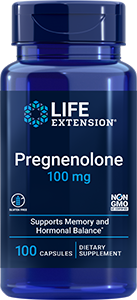| Because caloric restriction decreases body weight, especially dangerous abdominal fat, researchers originally thought its ability to prolong life was associated with decreased fat. However, this hypothesis was questioned after a study showed that genetically obese Zucker rats experienced no change in body fat percentage while on CRON compared to free-feeding controls, even though the restricted animals weighed less (Harrison DE et al 1984; Johnson PR et al 1997; Keenan KP 1996). Clearly, there were some other mechanisms at play. Mounting evidence suggests that CRON acts, at least in part, by improving insulin sensitivity, thereby reducing insulin and glucose levels. The data suggest that most people consume too many calories for optimal health. Part of the problem may be evolutionary. Stone Age humans consumed few calories from simple carbohydrates and more from complex carbohydrates, which are rich in natural fiber. High-fiber foods tend to be more filling than simple refined sugars and refined carbohydrates such as white flour. Even if our genes are still living in the Stone Age, we are not. To maximize our longevity, we need to find a way to have the benefits of caloric restriction without being constantly distracted by hunger. One of the persistent problems with people and CRON (calorie restriction with optimal nutrition) is low compliance. Maintaining a dramatically reduced caloric intake over the long-term can be very demanding, especially in a culture surrounded by inexpensive, plentiful, calorie-rich, nutrient-poor food. Realistically, few people are willing to reduce their caloric consumption by 30 percent to 40 percent (Roth GS 2005). Two approaches are currently being explored to make the benefits of CRON more accessible. The first is the most direct: reducing calories by 30 percent to 40 percent. This requires a careful diet that is rich in nutrients, complex carbohydrates, soluble fiber, and lean protein. Soluble fiber has been shown to decrease hunger, although hunger cannot realistically be eliminated completely during a dedicated CRON diet. Consuming fiber before meals can reduce the rapid absorption of simple carbohydrates and help decrease the post-meal surge in insulin (Anderson JW et al 1993). The second approach is the development of drugs that alter body biochemistry to mimic the benefits of CRON. | Thanks to all of us, Global Cures made it to the top 25. Next stop: Top 5! If you have been touched by cancer, you understand that cancer treatments are often toxic, marginally effective and expensive. And yet, there may be available today, new and affordable treatments for cancer using existing drugs. We invite you to participate in a grassroots project working to find these therapies for cancer. Just a few clicks of a mouse can help us get much needed funding from American Express. Introducing GlobalCures The National Institutes of Health has been instrumental in funding laboratory research for decades but has left the subsequent clinical trials to the drug companies. This model has worked well leading to the development of many miracle drugs. However, it has also left behind many untapped therapies. The reason is remarkably simple: clinical trials are expensive. Thus, only part of the vast body of ground-breaking laboratory work, that for which patent protection is guaranteed, has been earmarked by commercial enterprises for further investment. The rest of the promising therapies lie fallow: “potential untapped gems” that have never been followed through with clinical trials because nobody is willing to underwrite the costs involved. GlobalCures (www.global-cures.org) was established in 2007 as a non-profit medical research organization to address this problem. In the short span of a year and a half, we have identified several combination therapies that may be effective against Cancer and are looking for funding to run clinical trials. With your help, we have a unique opportunity to obtain seed funding for our project from American Express. You can help in two ways: - If you are an American Express card holder, vote for the project by clicking New, Affordable Treatments with Existing Drugs (login button on the top right). If you do not have a login id, you can register for one first. The deadline is September 29, 2008.
- Spread the word to your family, friends and colleagues by forwarding this email. Visit www.global-cures.org and sign up for the newsletter to monitor our progress.
|
















